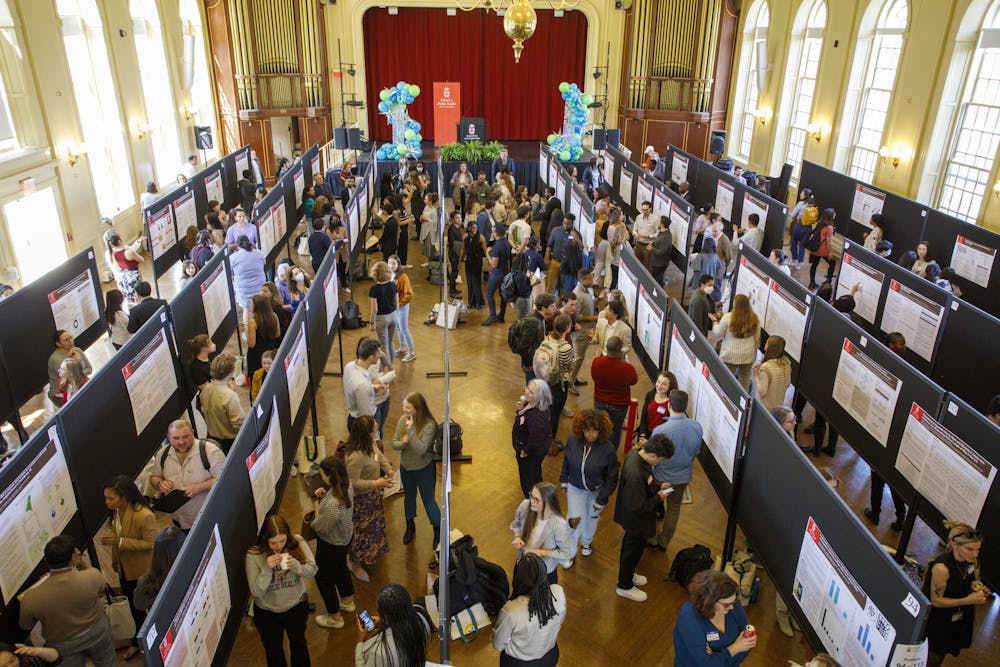Recognizing the research accomplishments of University students and their research partners, the School of Public Health hosted its annual Public Health Research Day conference Tuesday. The event featured posters created by undergraduate, master’s and doctoral students that highlighted their projects.
The conference showcased 151 poster submissions, each one focusing on a niche area of personal and scientific interest. Many projects started as an interest in a science or public health topic that led to greater research exploration, according to Jesse Yedinak, assistant dean of education at SPH and assistant professor of epidemiology.
“For so many students this is the culminating work of their degree,” Yedinak wrote in an email to The Herald. “These topics were carefully selected and students took a lot of time and energy to conduct the research.”
Kristopher Britton GS discussed his research on how trauma can affect child health. His poster focused on potential links between childhood psychological trauma and pediatric asthma.
“This area of study doesn’t have a lot of light shed on it because people are afraid to touch the topic,” Britton said. “I want to be a part of the space to understand more about these issues.”
Arielle Desir ’22 GS chose to dedicate her research to the study of health care among immigrant women in the United States. She analyzed the impacts of social determinants of health such as housing, income and employment on reproductive health in marginalized communities.
“Many people are barred from accessing health care, and that has major implications for their health and the health of generations overall,” she said.
Desir spoke about her dedication not just to the research but also to advocating for equitable health care access. “I don’t want to end at a publication,” she said. “I want to continue conversations on how to advance health care for all.”
The event also included submissions from undergraduate students. Ryan Conard ’23 spoke about his research on music interventions for nursing home residents diagnosed with dementia.
His study analyzed musical interventions as alternatives to pharmacological ones — which can cause adverse behaviors in people with dementia — at 54 nursing homes across the U.S.
“We’re looking into these alternative interventions that help with these behaviors and improve the quality of life for these people,” Conard said.
Research presented by Lucas Blackmore GS concentrated on tuberculosis monitoring in East London, South Africa.
“I saw this as an opportunity to use technological surveillance for health or epidemiological purposes,” Blackmore said. “The opportunity to collaborate with international researchers and work in another country was really interesting.”
Blackmore’s research included conducting interviews evaluating the feasibility of utilizing GPS data on cell phones. This data would discern hotspot locations of tuberculosis and help map patterns of movement and transmission across local communities. With this technology, responses to infectious diseases could be more specific and rapid.
One submission each from undergraduate, master’s and doctoral students will be selected for prizes by a panel of judges. Winners will be announced by the School of Public Health later this month.





